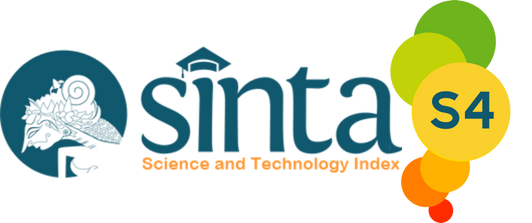The Effect of Brain Gymnastics on Fine Motor Skills in Children at Al Kautsar Islamic Kindergarten in South Jakarta City in 2024
DOI:
https://doi.org/10.62817/jkbl.v18i2.413Keywords:
brain gymnastics, fine motor skills, early childhood, developmental stimulation, DDSTAbstract
Fine motor skills are essential in early childhood development, supporting daily activities and school readiness. Brain gymnastics is a series of structured and simple movements involving coordination between the brain and body, designed to stimulate the nervous system and enhance motor development in a playful way. This study used a pre-experimental design with a one-group pretest-posttest approach. A total of 33 children aged 4–6 years were selected using purposive sampling. The Denver Developmental Screening Test (DDST) was used as the main instrument, completed through parent interviews and direct observation by the researcher before and after the brain gymnastics intervention. Data were analyzed using the Wilcoxon Signed-Rank Test. Before the intervention, 21 children (63.3%) showed delayed fine motor development. After the intervention, 30 children (90.9%) reached the normal developmental stage appropriate for their age. The Wilcoxon Signed-Rank Test revealed a significant difference with a p-value of 0.000 (p < 0.05), indicating a statistically significant improvement in fine motor skills. The results demonstrate that brain gymnastics effectively improves fine motor skills in children aged 4–6 years. Through engaging and coordinated movements, brain gymnastics stimulates neural pathways and supports optimal motor development. It can be applied as a fun and practical method of stimulation in early childhood education settings.
References
As'ari, A., Fadhilah, N., & Syamsuddin, S. (2023). The effect of brain gym on motor performance and focus in preschool children. Journal of Early Childhood Education Research, 12(1), 45–53.
Damiano, D. L., & DeJong, S. L. (2021). Sensorimotor control and plasticity in childhood development: Implications for therapy. Developmental Medicine & Child Neurology, 63(2), 150–157.
Green, D., Charman, T., Pickles, A., & Wan, M. W. (2020). Neurodevelopmental pathways in early childhood: A review of neuroplasticity and environmental influences. Child: Care, Health and Development, 46(4), 487–494.
Kementerian Kesehatan Republik Indonesia. (2019). Petunjuk teknis stimulasi, deteksi, dan intervensi dini tumbuh kembang anak (SDIDTK). Jakarta: Direktorat Kesehatan Keluarga.
Kolb, B., & Gibb, R. (2021). Brain plasticity and behavior in the developing brain. Canadian Journal of Experimental Psychology, 75(2), 125–134. https://doi.org/10.1037/cep0000251
Khasanah, N. U., Hartatik, S., & Fitriani, L. (2022). Global trends in early childhood development delays: An epidemiological review. International Journal of Pediatric and Adolescent Health, 15(3), 102–109.
Marliana, S. (2020). National early childhood education standards in Indonesia: Implementation challenges and opportunities. Jurnal Pendidikan Anak Usia Dini, 9(2), 66–75.
Mustamin, M., Lestari, R. D., & Bakar, A. (2021). Gender differences in fine motor development among preschool children. Journal of Health and Education Science, 12(2), 98–104.
Nurkamelia, D. (2020). Stimulasi motorik halus anak prasekolah dalam perspektif neuropsikologi. Jurnal Psikologi Pendidikan dan Perkembangan Anak, 8(2), 112–120.
Sukri, R., & Purwanti, H. (2022). Brain gym as a neuroeducational intervention for preschoolers: A quasi-experimental study. Jurnal Pendidikan Anak Usia Dini, 10(1), 22–30.
Sumiyani, R., Fauziah, N., & Handayani, S. (2024). Fine motor development in preschool children: A review of developmental stages and stimulation. Journal of Child Psychology and Development, 9(1), 11–18.
Suwardi, S. (2021). The importance of early detection in developmental delays among Indonesian children. Indonesian Journal of Community Health, 16(1), 31–39.
UNICEF. (2022). State of the World’s Children 2022: Reimagining early childhood care. New York: United Nations Children’s Fund.
World Health Organization. (2022). Improving early childhood development: WHO guidelines.
Geneva: World Health Organization.
Yuliansih, R. (2021). Brain gym as a stimulation method for cognitive and motor development in early childhood. Jurnal Ilmiah Pendidikan Anak, 5(1), 54–62.
Downloads
Published
How to Cite
Issue
Section
Citation Check
License
Copyright (c) 2025 Heni Purwanti, Tantri Wenny Sitanggang, Ernawilis, Laila Anjani

This work is licensed under a Creative Commons Attribution-ShareAlike 4.0 International License.









